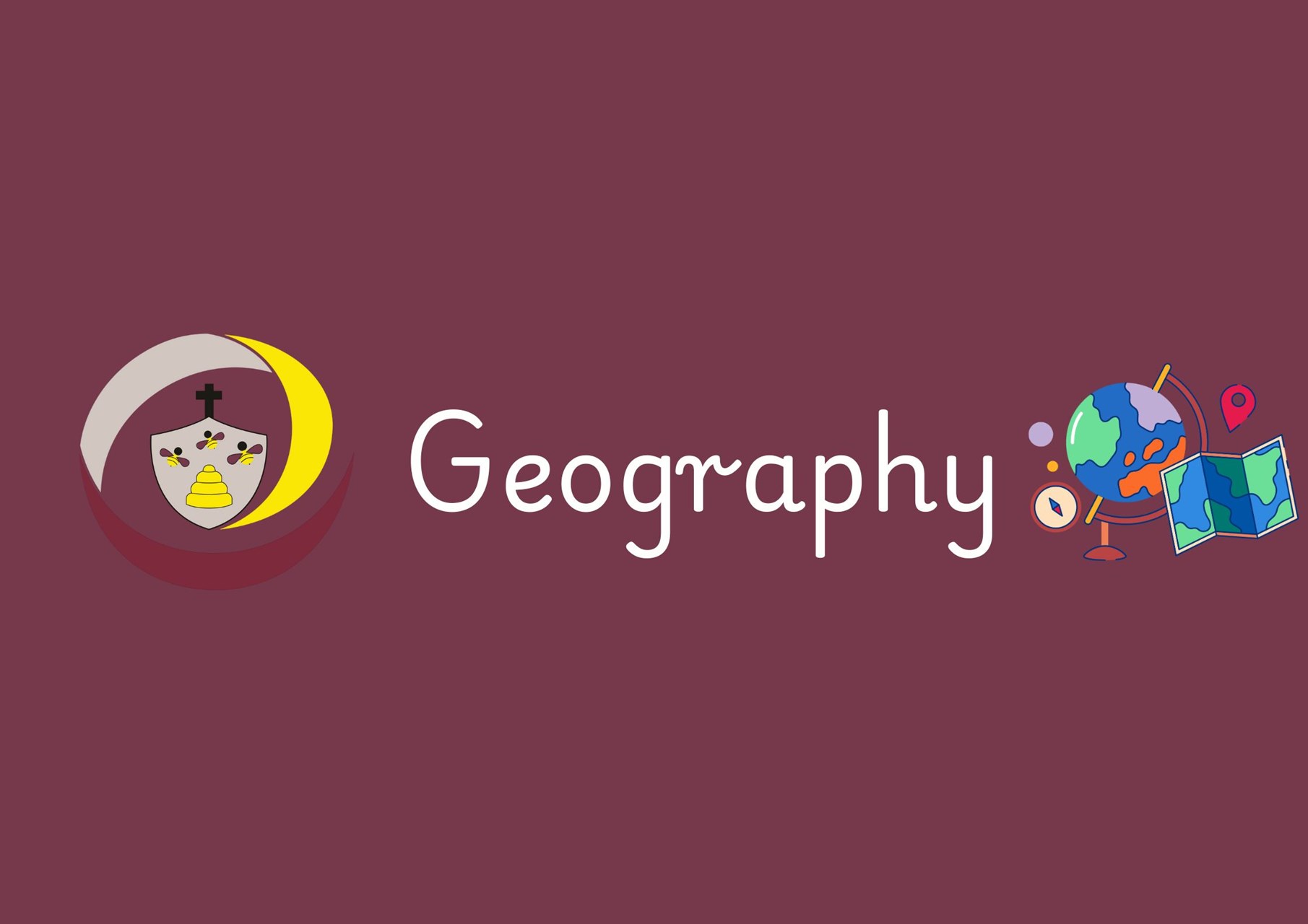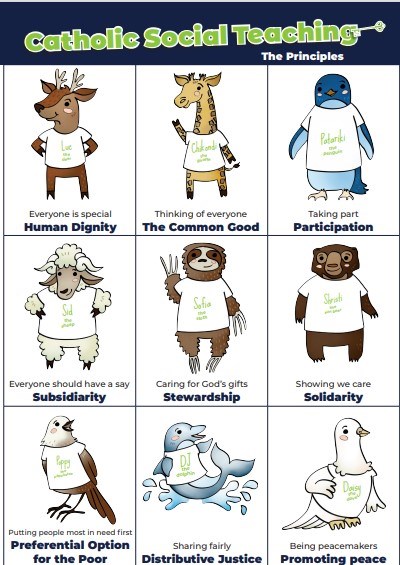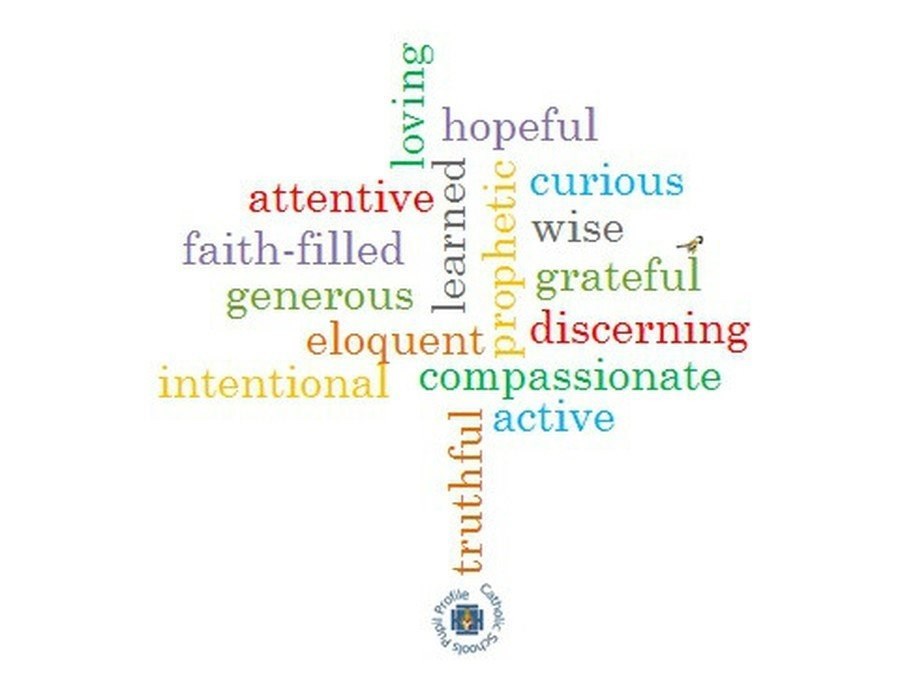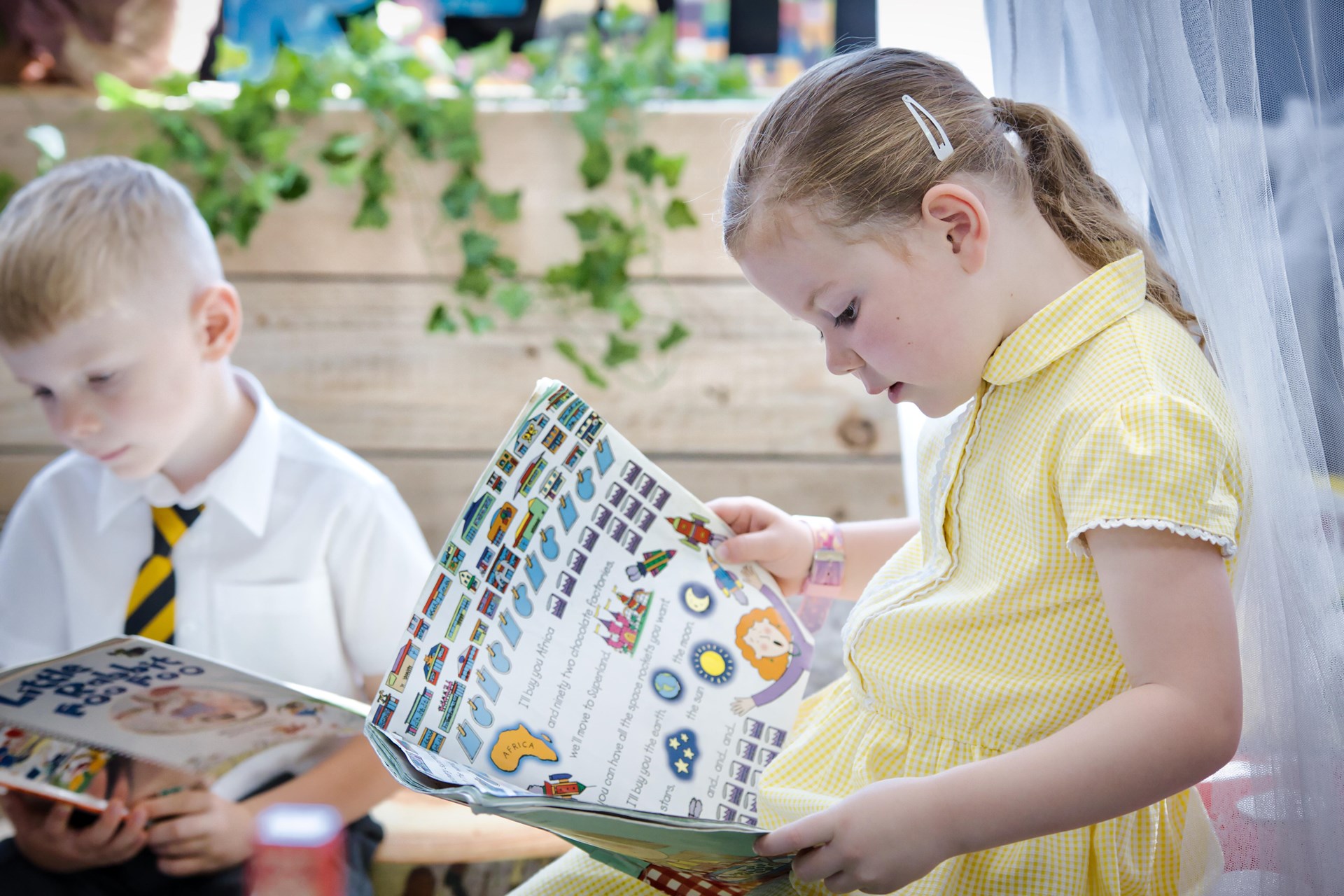Geography

Geography at St Ambrose: Inspiring Lifelong Geographers
At Saint Ambrose, we want our children to develop a deep love and respect for the world around them. Geography helps pupils understand the physical and human features of our planet, sparking curiosity about the diverse places, people, and environments they share it with.
Intent, Implementation and Impact
Intent
Through geography, children will:
Explore the world with curiosity, noticing how landscapes, climates, and communities differ and connect.
Gain knowledge of significant places in the UK and across the globe, and consider the environmental challenges facing our planet today.
Develop strong mapping and spatial skills, enabling them to read, interpret, and navigate the world with confidence.
By learning geography, our pupils become informed, confident, and responsible global citizens, inspired to care for God’s creation and engage positively with the world.
At Saint Ambrose, our geography curriculum is an adventure in discovery.
Learning is carefully planned and sequenced so that knowledge and skills build progressively from Early Years to Year 6, allowing pupils to remember more, understand more, and make meaningful connections across topics and years.
Children explore geography through:
Hands-on fieldwork and first-hand experiences, both in school and within the local community.
Maps, globes, atlases, and digital tools, developing confidence in interpreting and representing spatial information.
Guided enquiry and discussion, encouraging curiosity, questioning, and reflection.
Modelling and assessment for learning, with teachers identifying misconceptions and adapting teaching to meet every child’s needs.
Self and peer assessment are built into lessons, helping pupils to reflect on their learning and grow as independent geographers.
In the Early Years, geography is introduced through the ‘Understanding the World’ area of learning. Children begin their geographical journey by exploring:
Their immediate environment — home, school, and local surroundings.
Differences between places, explored through stories, role play, and small-world activities.
Observation and enquiry, as they talk about what they notice and ask questions about the world around them.
Everyday experiences such as walks, nature exploration, and noticing seasonal changes, helping them build early vocabulary and awareness of human and physical geography.
Our geography curriculum ensures that all children make strong progress relative to their starting points, developing knowledge, skills, and a lifelong enthusiasm for the subject.
By the time pupils leave Saint Ambrose, they will:
Meet or exceed age-related expectations in geography.
Approach the subject with curiosity, confidence, and critical thinking.
Be equipped with the geographical knowledge and enquiry skills needed for Key Stage 3 and beyond.
We see the impact not just in books or maps, but in children’s questions, reflections, and excitement about the world as they explore places, people, and environments both near and far.
"The earth is the Lord's, and everything in it, the world, and all who live in it." Psalm 24:1

Curriculum
Catholic Social Teaching

At St Ambrose, our Geography curriculum is deeply rooted in the values of Catholic Social Teaching (CST), helping pupils understand their role as global citizens and stewards of God’s creation. Through Geography, children explore the world’s places, people, and environments, and learn how to act with justice, compassion, and care for the common good.
In Key Stage 1, pupils begin to see the world as a gift from God, a place filled with beauty, diversity, and life. Geography helps them explore how people live in different environments and how we can all help to care for our shared home.
Links to CAFOD CST Principles:
Stewardship of Creation: Pupils learn that God made the world and we must look after it for example, by reducing waste and protecting nature.
Dignity of the Human Person: Children recognise that everyone, everywhere, is special and loved by God, no matter where they live.
The Common Good: Pupils explore how working together helps everyone in their community and beyond.
Solidarity: When learning about other countries, pupils understand that all people are our global neighbours and deserve fairness and kindness.
Example links in learning:
Studying the local area and learning how people care for it.
Comparing homes and weather in different countries and reflecting on how we can share resources fairly.
Exploring maps and discussing how we are all part of one world made by God.
In Key Stage 2, pupils build on their early understanding and begin to think about global connections, sustainability, and justice. Geography lessons encourage them to reflect on how human actions affect the environment and how we can work together to protect our planet and support others.
Links to CAFOD CST Principles:
Stewardship of Creation: Pupils learn about climate change, pollution, and deforestation, and explore ways to care for the earth responsibly.
Solidarity and the Common Good: Pupils study global trade, migration, and natural disasters, recognising the importance of standing with others and sharing the world’s resources fairly.
Option for the Poor and Vulnerable: Children learn that some communities are more affected by environmental challenges, and reflect on how we can help those in need.
Dignity of Work: When studying trade or natural resources, pupils consider fairness, workers’ rights, and how choices we make can impact others.
Subsidiarity and Participation: Pupils are encouraged to take action for example, through eco projects, school initiatives, or fundraising where we are showing that everyone can make a difference.
Example links in learning:
Investigating how climate change affects different regions and communities.
Exploring fair trade and global connections through mapping and research.
Learning about sustainable cities and how people can live in harmony with the environment.
Catholic School Pupil Profile
Geography encourages pupils to be curious and wise as they explore the world’s physical and human features, asking questions about places, cultures, and environments. Through map work and field studies, children become attentive and discerning, noticing patterns and making informed decisions about how people interact with the planet. Investigating global issues such as climate change and migration helps pupils to be truthful and eloquent, communicating their findings clearly and honestly.
Learning about diverse communities and environmental challenges nurtures compassionate and loving attitudes, inspiring pupils to care for creation and respect all people. Studying stewardship and sustainability promotes being faith-filled and hopeful, seeing how collective action can protect the Earth. Geography also develops intentional and active learners who take responsibility for their choices, and generous, as they share ideas and collaborate on projects that promote the common good.

What our children say about Geography
“I like going on walks to see what’s around our school, we spot trees, cars, and houses.”
“We look at maps and find where we live.”
“God made our world, so we look after it by putting rubbish in the bin and watering plants.”
“We learned about hot and cold places and what animals live there.”
“I can find the United Kingdom on a map, that’s where we live!”
“We talked about looking after the Earth because it belongs to everyone.”
“We found out how people live in different countries and what their homes are like.”
“I like learning about maps, I can use symbols to find places.”
“We learned that some people don’t have clean water, and we should help and care for them.”
“We studied our local area and found out how places have changed over time.”
“I like using maps and keys, they help me understand where things are.”
“We talked about how people can look after rivers and animals that live nearby.”
“We learned about Europe and how countries are connected.”
“Our river topic helped me understand how water travels and why it’s important to protect it.”
“I like doing fieldwork, it’s fun to be outside learning about real places.”
“We studied climate zones and how different weather affects people’s lives.”
“We learned about fair trade and how buying certain things helps farmers in other countries.”
“I like using maps and data to see how our world is changing and what we can do to help.”
“We learned about natural disasters and how people help each other when things go wrong.”
“I understand how climate change affects people around the world and that we need to take care of creation.”
“Geography makes me think about being responsible, we can all make a difference, even in small ways.”
Snippets of Geography lessons
